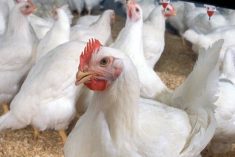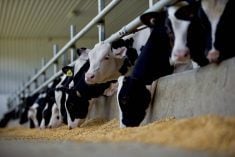CHICAGO (Reuters) — The number of U.S. grain elevators, mills and feedlots that will buy a type of biotech corn banned by China has more than doubled since July, indicating growing domestic acceptance for a product seen as a potential risk to international trade.
The number of locations accepting corn containing Syngenta AG’s Agrisure Duracade trait increased to 1,652 from 672 in the past seven months, the seed maker said in a statement on Thursday.
The announcement, coming just before the start of the planting season, is aimed at convincing farmers to buy Duracade corn seed by assuring that they will have places to deliver their harvests.
Read Also

CBOT Weekly: China, shutdown guiding the market
The United States grain and oilseed markets are currently dominated by two factors, said Ryan Ettner, broker with Allendale Inc. in McHenry, Ill. Ettner said those are the absence of a trade deal with China and the ongoing United States government shutdown.
A company spokesman declined to estimate how many acres will be planted with Duracade corn because the company is still accepting orders.
Two of the world’s biggest commodity traders, Cargill Inc. and Archer Daniels Midland Co., refuse to accept Duracade corn at facilities because it is still not approved by all major importers.
Last year, Cargill and ADM sued Syngenta after China rejected boatloads of U.S. crops containing another biotech Syngenta corn variety, Agrisure Viptera, that at that time lacked import approval from Beijing. China approved imports of Viptera corn, also known as MIR 162, late last year.
Syngenta has said the lawsuits are baseless.
In an attempt to keep Duracade corn out of unapproved foreign markets, Syngenta last year hired grain merchant Gavilon, owned by Marubeni Corp., to develop a network of elevators, mills, feedlots and ethanol plants that would accept farmers’ harvests for use in the United States.
Syngenta has also restricted Duracade corn planting to geographic areas that typically produce crops used domestically.
Still, the risk for accidental shipment overseas could increase with the expansion of locations that accept Duracade corn, said Bob Nielsen, a professor of agronomy and extension corn specialist at Purdue University.
“The devil will be in the details as to how well all of these outlets are able to segregate this grain if they are also receiving grain that will go out to the global market,” he said.
Nationwide, there are about 8,700 off-farm storage facilities for grain, according to the U.S. Department of Agriculture.














